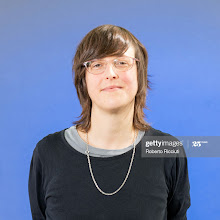Returning to Badhwar’s essay, it is important to note the impulsive and / or compulsive nature of the acts of altruism that she studied – “the spontaneity of their choice to help” (Badhwar 1993, p.96). She observes that:
“Those who acted spontaneously, then, acted with a sense that they had no alternative but to help, and that, under the circumstances, helping was nothing special… [Their actions were] a spontaneous manifestation of “deep-seated dispositions which form one’s central identity” or character.” (Badhwar 1993, p.97)
Of course, impulsion and / or compulsion are not the sorts of qualities which can be taught or learnt. As is suggested, you really have to believe in what you are doing in order to act instinctively – in a way which is not premeditated or over-deterministic. In this sense you cannot simply follow a ‘plan’ to be altruistic as this is in its essence self-defeating. It is, however, possible to develop one’s “character” or “identity”, so that we do begin to notice when things are wrong or unjust and we really do feel compelled to act to change them. This is done through periods of self-reflection but also, more importantly, by acquiring knowledge.
Oliver Ressler uses his research-based practice as a way of not only acquiring knowledge for himself, but of disseminating it to others – via video, installation and public realm contexts. His 2008 film What Would It Mean To Win? in collaboration with Zanny Begg focuses on the counter-globalisation protests at the G8 Summit in Heiligendamm in Germany in 2007. The documentary sections of which probe members of resistance movements to consider just what form society might take if they were to ‘win’ what they have been fighting for. His creation of a bank of knowledge about social alternatives is extended in Alternative Economics, Alternative Societies – a documentary, installation and billboard project which presents ideas and proposals for alternative economic and societal models, which all use the rejection of the system of capital as a starting point (Ressler 2007). The research from this project was published as a book in 2007.
Ressler’s book can be seen as a companion to that of art collective Superflex who in 2006 initiated and published Self-organisation / Counter-economic Strategies. As a “toolbox of ideas”, the book puts forward a series of proposals for self-organised models of social and economic systems that also aim to offer an alternative to capitalism (Bradley et al. 2006). Both books aim to spark debate about the negative effects of our current social order and (as Point 2. suggests) ‘to revivify the belief that ‘an alternative’ is possible’.
What is interesting is that the more we learn about the connections between capitalism and environmental catastrophe – the more self-reflection we undertake – the more ‘responsibility’ we inherit. In his famous essay exploring the moral differences between active and passive action Killing and Starving to Death, James Rachels illuminates this notion:
“There is a curious sense, then, in which moral reflection can transform decent people into indecent ones: for if a person thinks things through and realises that he is, morally speaking [in the wrong]… his continued indifference is more blameworthy than before.” (Rachels 2006, p.73)
And so the self-reflexive artist enters into a spiral. The more knowledge that they research and acquire – the more their conscience is likely to compel them to act. The question then becomes whether art is the most efficient way of effecting real change.
How to Reconcile the Careerist Mentality with Our Impending Doom
By Ellie Harrison
May 2010
Contents
- Preface
- Global Warming Projection
- Setting the Scene
- The Careerist Mentality
- Our Impending Doom
- A Rude Awakening
- Now or Never
- Atomised Art World
- Free Our Minds
- Outside the Bubble
- Plan of Action
- New Moral Code
- Clandestine Insurgence
- Alternative Knowledge
- Practical Solutions
- Multi-Pronged Approach
- A Reconciled Practice
- Our Fully Functional Role
- References
